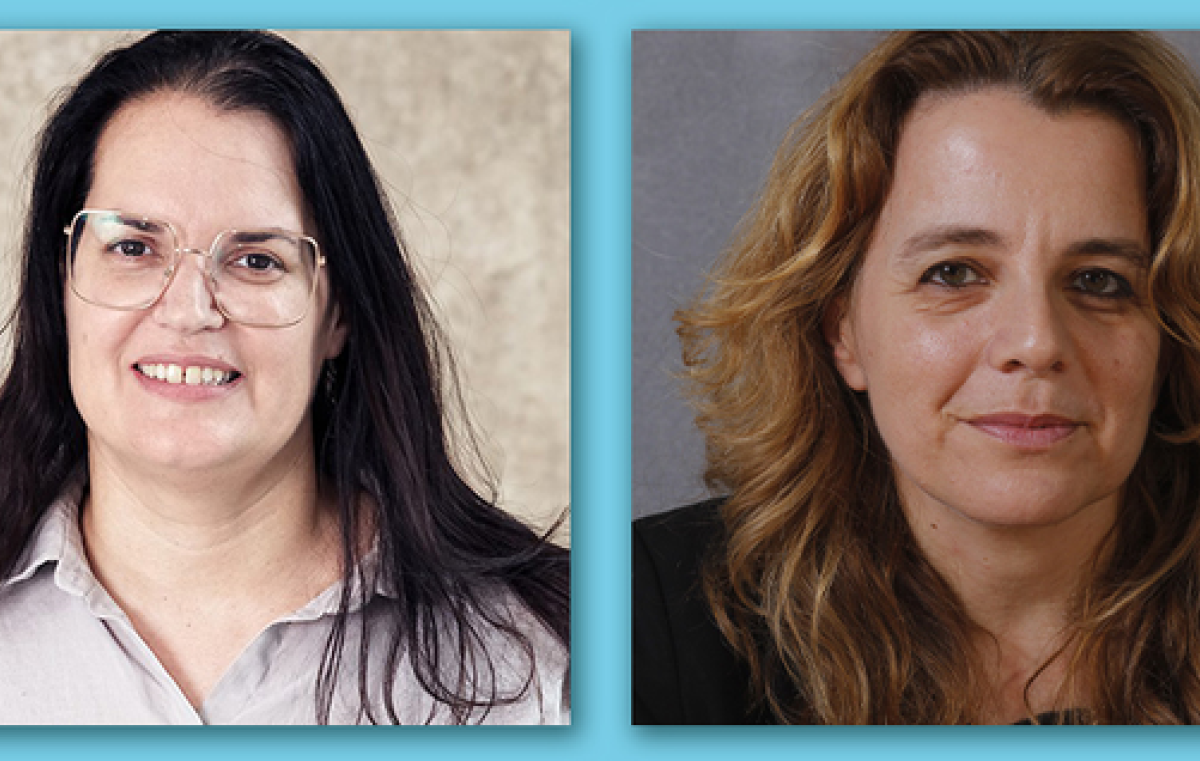Encouraging Impact and Innovation
Two BIU Researchers Awarded European Research Council Proof of Concept Grants

Two Bar-Ilan University researchers - Prof. Michal Alberstein, of the Faculty of Law, and Prof. Sharon Ruthstein, of the Department of Chemistry and Institute of Nanotechnology and Advanced Materials - are the recipients of European Research Council (ERC) Proof of Concept (PoC) grants for their innovation proposals: MULTIDOOR and Hypo-Imag.
The Proof of Concept grant provides complementary funding to Starting, Consolidator, Advanced and Synergy grantees to enable ERC-funded ideas to progress on the path from groundbreaking research towards innovation.
Vice President for Research Prof. Shulamit Michaeli commended Profs. Alberstein and Ruthstein upon the announcement and noted that Bar-Ilan University was awarded more than ten million Euros in EU grants just over the past month.
Prof. Michal Alberstein is the academic director of eight legal clinics, among them the Dispute Resolution Clinic at the Faculty of Law. Her proposal, MULTIDOOR, is a digital platform based on conflict resolution and machine learning expertise to address the comprehensive needs of litigants and recommend the best way forward to resolve their disputes. “At present, litigants attempting to navigate through the civil justice system end up drifting through an incoherent, opaque process generally resulting in some form of reluctant compromise. While court systems worldwide are investing much effort to increase efficiency, a human-centered approach, which considers litigants' needs, interests and emotions, is lacking," explains Alberstein.
MULTIDOOR uses an intake screening recommendation system to integrate each litigant's specific needs, interests and emotions, personal features such as conflict resolution style and personality, the features of the case, and the predicted case trajectory in the legal system, resulting in a diagnostic recommendation (e.g., mediation, arbitration, adjudication, or out-of-the-box solutions).
The digital platform’s benefits include developing a new domain of conflict resolution machine based on collaboration with scientists and experts, advancing a personalized conflict resolution-oriented response to dispute and promoting public trust by ensuring that both parties are informed and supported to self-determine how to resolve their disputes.
Prof. Sharon Ruthstein's proposal, Hypo-Imag, was awarded the second grant. Cancer is a leading cause of mortality worldwide. Hypoxia is associated with low oxygen levels in the cells, which leads to an increase in tumor aggressiveness, and to resistance to chemotherapy and radiation therapy. The development of Biomarker for hypoxic tissues is essential both for diagnostic formulation and treatment planning for most cancer patients. Hypoxia is found not only in cancerous tumors but also in blood vessel blockages (stroke) and aggregates of amyloids (neurological diseases).
Hypo-Imag is a hypoxia radioactive marker based on the Copper 64 isotope to identify oxygen-deficient cells. Studies have shown that oxygen concentration in the cell is directly related to the aggressiveness of cancerous tumors. The hypoxia radioactive marker will not only determine if the tumor is malignant or benign, but also how aggressive it is through a single image, eliminating the need for a biopsy.
Quantification of oxygen concentration in cancer cells is necessary in order to characterize how aggressive the tumor is and to better tailor treatment. To date, no radioactive marker has been developed that allows the monitoring of oxygen-deficient cells since the marker has to undergo a reduction process and therefore both its chemical process and its biological mechanism must be well understood. Prof. Ruthstein's laboratory developed a radioactive marker based on copper that actively integrates within the copper ion cellular cycle and is therefore largely absorbed by the cell.
“We would like to expand our experiments by testing our compound in additional cancers, such as ovarian and prostate cancers. The main objective of this proposal is to complete all pre-clinic experiments needed before entering the clinic,” says Prof. Ruthstein.
A total of 166 researchers funded by the European Research Council (ERC) have won Proof of Concept Grants. Worth €150,000 (NIS 550,000) each, the funding will help them bridge the gap between the results of their pioneering research and the early phases of its commercialization. The grants are part of the EU's research and innovation programme, Horizon Europe.
The new grants were awarded to a total of 18 researchers working in Israel.
Prof. Sharon Ruthstein (left) Dana Ram Photography. Prof. Michal Alberstein (right)